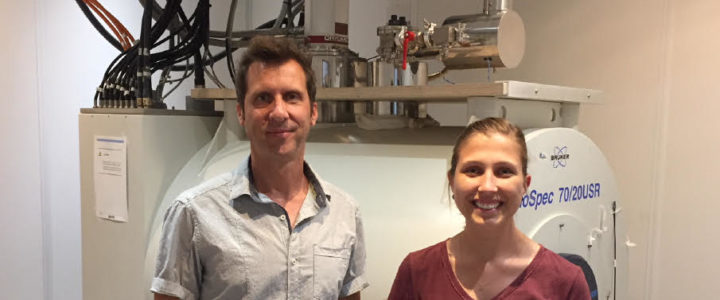FRAXA Research Foundation has renewed Kamila Castro’s 2017 FRAXA Fellowship for a second year. With this $90,000 award, Kamila Castro and Principal Investigator Dr. Andreas Frick are using non-invasive magnetic resonance imaging (MRI) methodology to assess connectivity changes in the brain in Fragile X. If this project is successful, we will have objective outcome measures to evaluate new treatments, both in mice bred to mimic Fragile X and in human patients.
Read moreResearch Updates
Mega Green Tea Extract to Treat Fragile X?

Green tea is thought to have many benefits, particularly in cognitive function. In 2012-14, FRAXA Research Foundation funded a clinical trial to assess the effects of EGCG (green tea extract) on cognitive function in adults with FXS. Drs. Rafael de la Torre and Mara Dierssen Sotos, principal researchers in Barcelona, Spain, reported memory, attention, and mental flexibility improvements.
Read moreHow Promising is CRISPR for Fragile X?

Peter Todd, MD, PhD, Assistant Professor in the Department of Neurology in the University of Michigan Medical School, was awarded a FRAXA Research Grant for gene reactivation with the use of CRISPR. In this interview he tells us about CRISPR in Fragile X research, how realistic is it that it could turn the Fragile X gene back on, and if it can really cure Fragile X.
Read moreRetinoic Acid Signaling is Blocked by Fragile X Mutation
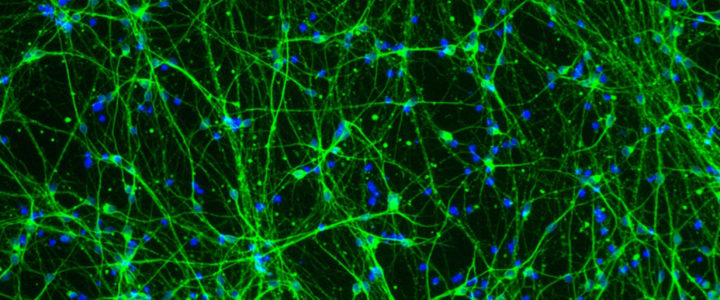
With a 2013-2014 FRAXA Research Grant, Principal Investigator Marius Wernig, PhD and FRAXA Fellow Samuele Marro, PhD at Stanford University found that the Fragile X mutation impairs homeostatic plasticity in human neurons, by blocking synaptic retinoic acid signaling. Retinoic acid is a metabolite of Vitamin A. The system they have developed could provide a powerful new cellular biomarker for screening many treatment approaches.
Read moreAripiprazole as a Treatment for Fragile X Syndrome
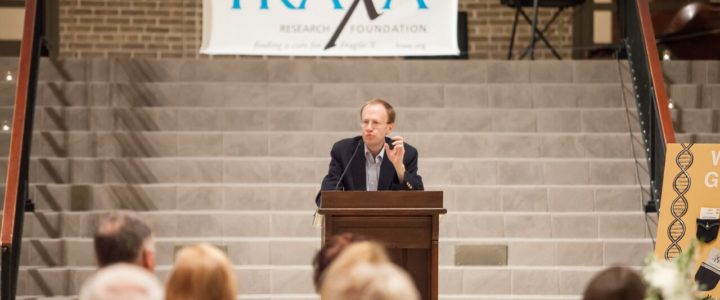
Many medications are used to help people with Fragile X cope. But few clinical trials have been done on these drugs. Years ago FRAXA funded Dr. Craig Erickson to run a trial of aripiprazole (aka Abilify). FRAXA guest writer Hannah Miles recently caught up with Dr. Erickson to learn the results of the trial.
Read moreStudy Examines Behavioral Traits of Fragile X Patients Without Autism

Patients with Fragile X syndrome who don’t meet the cut-off for a diagnosis of autism show a decrease in impulsivity and repetitive questioning over time, when compared with patients who do, a new study shows.
Read moreLysogene Partners with FRAXA Investigator Dr. Hervé Moine to Develop Gene Therapy for Fragile X

A research project funded by FRAXA has led to new fragile x gene therapy initiative, this time in France. Lysogene, a French biopharmaceutical company working to develop gene therapy treatments for brain disorders, is partnering with FRAXA Investigator Dr. Herve Moine to tackle Fragile X syndrome.
Read moreFRAXA Research Grants Drive Big Investments in Fragile X
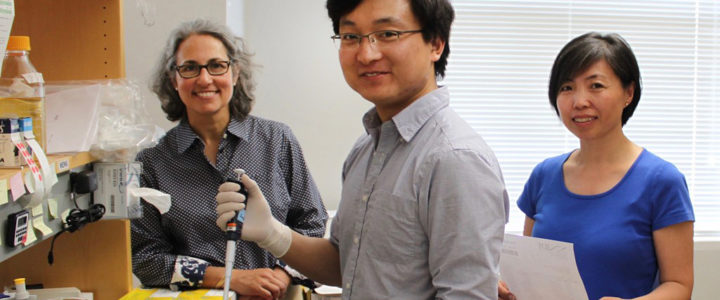
Most people know that FRAXA supports academic research at many institutions such as Harvard University, University of Pennsylvania, Massachusetts Institute of Technology, and Yale University. However, FRAXA is also working with more than 30 pharmaceutical companies around the world. Mike spends a lot of his time advising and collaborating with industry partners.
Read moreCan CRISPR Cure Fragile X Syndrome?
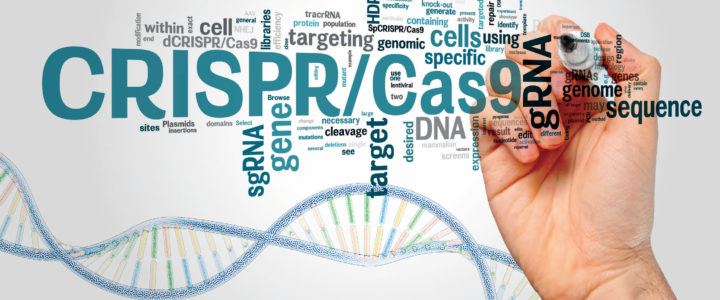
CRISPR/Cas9 was used by MIT researchers to remove the molecular tags that keep the mutant gene shut off in Fragile X syndrome neurons and resulted in some of them producing protein normally. Much work is being done right now, with exciting new discoveries coming at a fast and furious pace.
Read moreCRISPR Reactivation of the Fragile X Gene
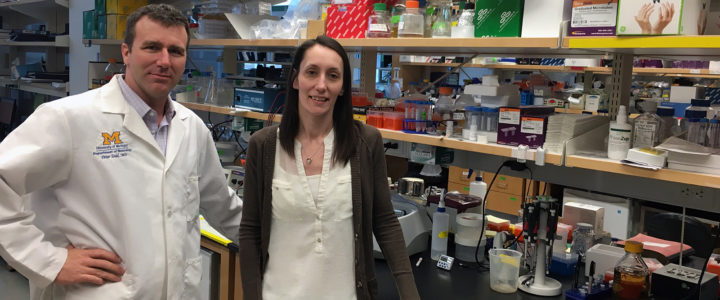
“We are trying to target the first event that goes wrong in Fragile X syndrome”, says Todd, “One reason our previous attempts to develop treatments for Fragile X syndrome have failed is that they’ve tried to target the downstream effects of losing the Fragile X protein. The protein does many things… bypassing all the functions that it normally takes care of has proven difficult from a pharmacologic perspective.”
Read moreNewly Discovered Regulatory Pathways in Fragile X
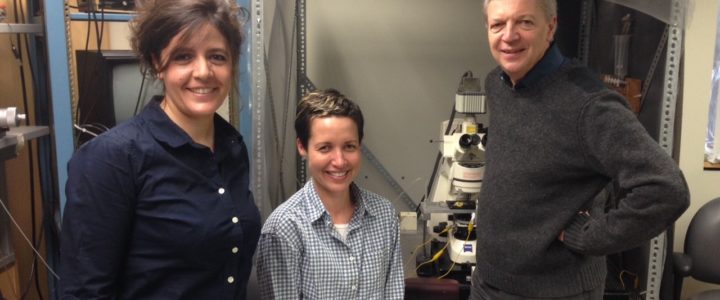
Studies at Yale University and elsewhere are showing that FMRP plays a significant role in the regulation of potassium channels. Looking forward, potassium channel opener drugs could rescue some symptoms of Fragile X in humans.
Read moreDrug Repurposing Study Results Accelerate Progress Towards Fragile X Treatments

While there are over 8,000 rare diseases affecting an estimated 350 million people worldwide, only around 200 of these conditions have effective treatments. Due to the high cost of developing new drugs, rare diseases have historically been less attractive to pharmaceutical companies. Drug repurposing systematically leverages the detailed information available on approved drugs and reduces the time and money needed to deliver safe “new” treatments, but with greater success rates and a potentially more immediate impact on health care.
Read moreIn Their Own Words: Reports From the International Fragile X Workshop
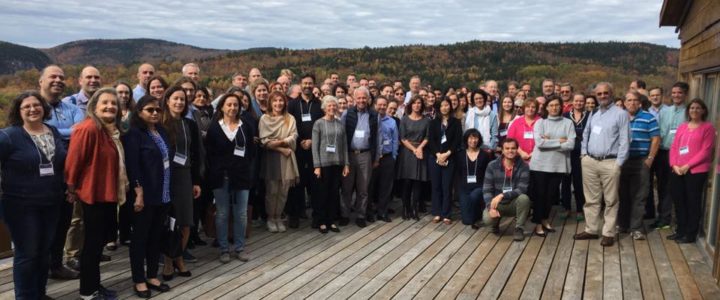
The 18th International Fragile X and Related Neurodevelopmental Disorders Workshop in Quebec, Canada, was a great success, featuring Fragile X much more heavily than any previous meeting in this series! We asked our speakers to summarize their work in their own words, with brief updates from researchers investigating Fragile X.
Read moreBrain Imbalance Target of Dr. Erickson’s New Clinical Trial

According to Dr. Erickson, AZD7325 is a drug that selectively boosts GABA neurotransmission in the brain. GABA is the primary neurochemical in the brain that blocks brain activation. GABA activity is in balance in the brain with Glutamate activity, which is the primary neurochemical that causes brain activation. In Fragile X, GABA activity is insufficient and glutamate activity is excessive, likely causing brain activity to be out of balance. AZD7325 attempts to correct parts of this imbalance by boosting the insufficient GABA activity in the brains of people with Fragile X.
Read moreFragile X in the Forefront of International Conference

Today the 18th International Fragile X and Related Neurodevelopmental Disorders Workshop kicks off in Quebec, Canada. For the next six days, scientists from around the world will gather at this workshop to focus on recent breakthroughs in our understanding of Fragile X, autism spectrum disorders (ASD), and related neurodevelopmental disorders. This biennial meeting has been instrumental to the discovery of many disease-causing genes and the development of therapeutic strategies for these disorders.
Read moreNeural Markers of Fragile X: A Powerful New Tool for Clinical Trials
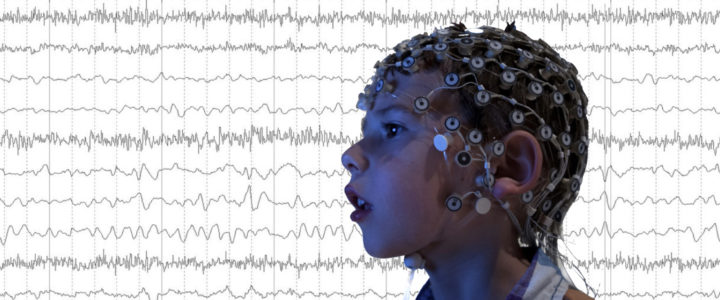
Once the neural marker is identified for a particular challenge, such as kids with poor language versus good language, neural markers can be measured during drug and behavioral therapy trials to see if a child is improving based on objective biological measures.
Read moreTargeting Serotonin Receptors to Treat Behavioral and Psychological Symptoms
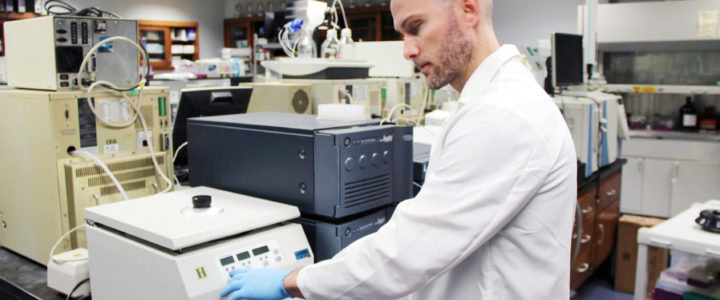
With a $90,000 grant from FRAXA Research Foundation awarded in 2017, Dr. Clinton Canal targets seratonin receptors. “There are 15 unique serotonin receptors (at least) and many of them impact the function of brain circuits that are impaired in neurodevelopmental and psychiatric disorders,” said Dr. Canal. “Results from this project could guide new drug discovery or drug repurposing for Fragile X.”
Read moreFRAXA Wins Award for Drug Repurposing

Cures Within Reach, the leading global nonprofit focused on repurposing research as a fast track to saving patient lives, has awarded FRAXA Research Foundation the 2017 Golan Christie Taglia Patient Impact Philanthropy Award for efforts to find treatments for the rare disease Fragile X syndrome.
Read moreMetformin, Diabetes Drug, Potential Fragile X Treatment
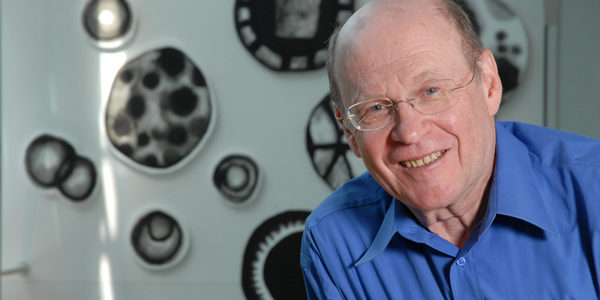
“We treated mice with metformin and corrected all the core Fragile X deficits. We are optimistic about using metformin in human clinical trials. This is a generic drug with few side effects” says Nahum Sonenberg, PhD, James McGill Professor, Department of Biochemistry, McGill Cancer Center, McGill University.
Read moreFragile X Nervous (System) Breakdown
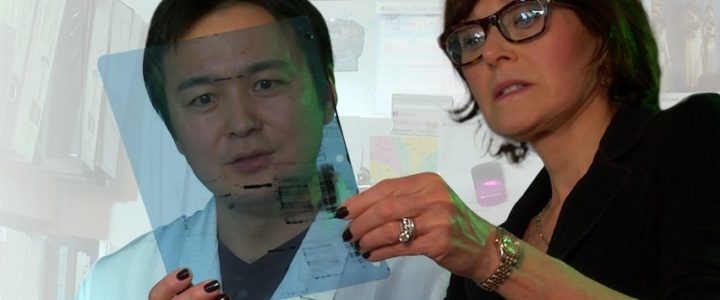
“The occurrence and development of events by chance in a happy or beneficial way.” That’s how Lynne E. Maquat, PhD, describes the process of how her research extended to Fragile X syndrome to better understand it and ultimately find advanced treatments.
Read moreRepurposing Available Drugs to Treat Fragile X Syndrome – FRAXA Initiatives
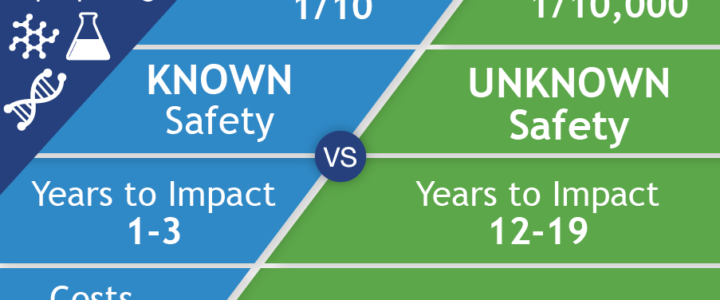
FRAXA Research Foundation was founded in 1994 to fund biomedical research aimed at finding a cure for Fragile X syndrome and, ultimately, autism. We prioritize translational research with the potential to lead to improved treatments for Fragile X in the near term. Our early efforts involved supporting a great deal of basic neuroscience to understand the cause of Fragile X. By 1996, these efforts had already begun to yield results useful for drug repurposing. To date, FRAXA has funded well over $25 million in research, with over $3 million of that for repurposing existing drugs for Fragile X.
Read moreFragile X Research Tackles High Anxiety – Peter Vanderklish

Yes, we all know the signs of Fragile X anxiety: Ears begin turning red followed by incessant pacing, heavy breathing, stiffening body, flapping, jumping, avoidance or yelling. Sometimes, it’s the more severe screaming, pinching, scratching, biting and general tearing things up or, worse, the nuclear meltdown.
Read moreUniversity of Cambridge Startup Healx is Rapidly Identifying Existing Drugs to Help Fragile X Patients
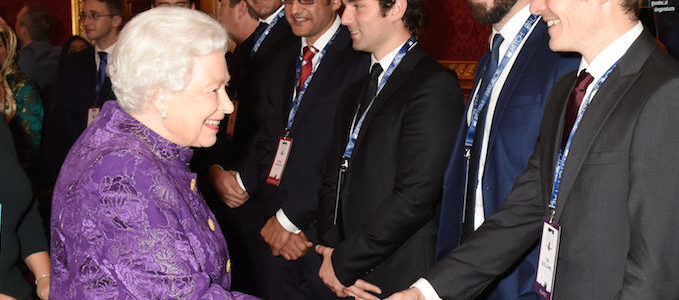
FRAXA awarded $44,000 to Healx in 2017 for drug repurposing to find new treatments for Fragile X syndrome. The results of this study include eight top “hits” which show promise for Fragile X. FRAXA is further investigating these hits.
Read moreTrial and No Error: Better Outcomes for Clinical Trials in Fragile X Syndrome
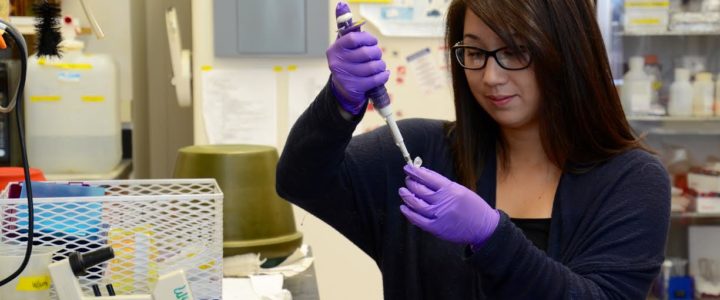
Johns Hopkins researcher Christina Timmerman, PhD, searches for a less subjective method to determine if a drug is working in patients with Fragile X syndrome. Many parents of children with Fragile X syndrome were crushed when promising drug trials were unexpectedly stopped a few years ago because subjective behavior-based outcome measures did not justify continuing the trials. The strong feelings linger today. If all goes well with Christina Timmerman’s research, future drug trials may be able to continue with additional metrics for assessment, until there are advanced treatments or even a cure for Fragile X syndrome.
Read moreNIH Investigator Carolyn Beebe Smith, PhD, Looks to Improve Sleep in Fragile X Syndrome
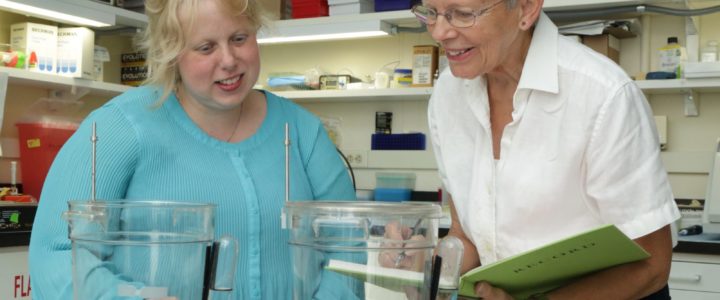
Our sons with Fragile X Syndrome typically go to bed early and rise early. Sometimes they jump on us while we are sleeping at 3 a.m., excited to start their day. For heaven’s sake, why? The answer may come from Carolyn Beebe Smith, PhD, senior investigator, Section on Neuroadaptation and Protein Metabolism, National Institute of Mental Health, National Institutes of Health, Bethesda, Maryland. She is studying why children, in particularly boys, with FXS have problems sleeping.
Read more
